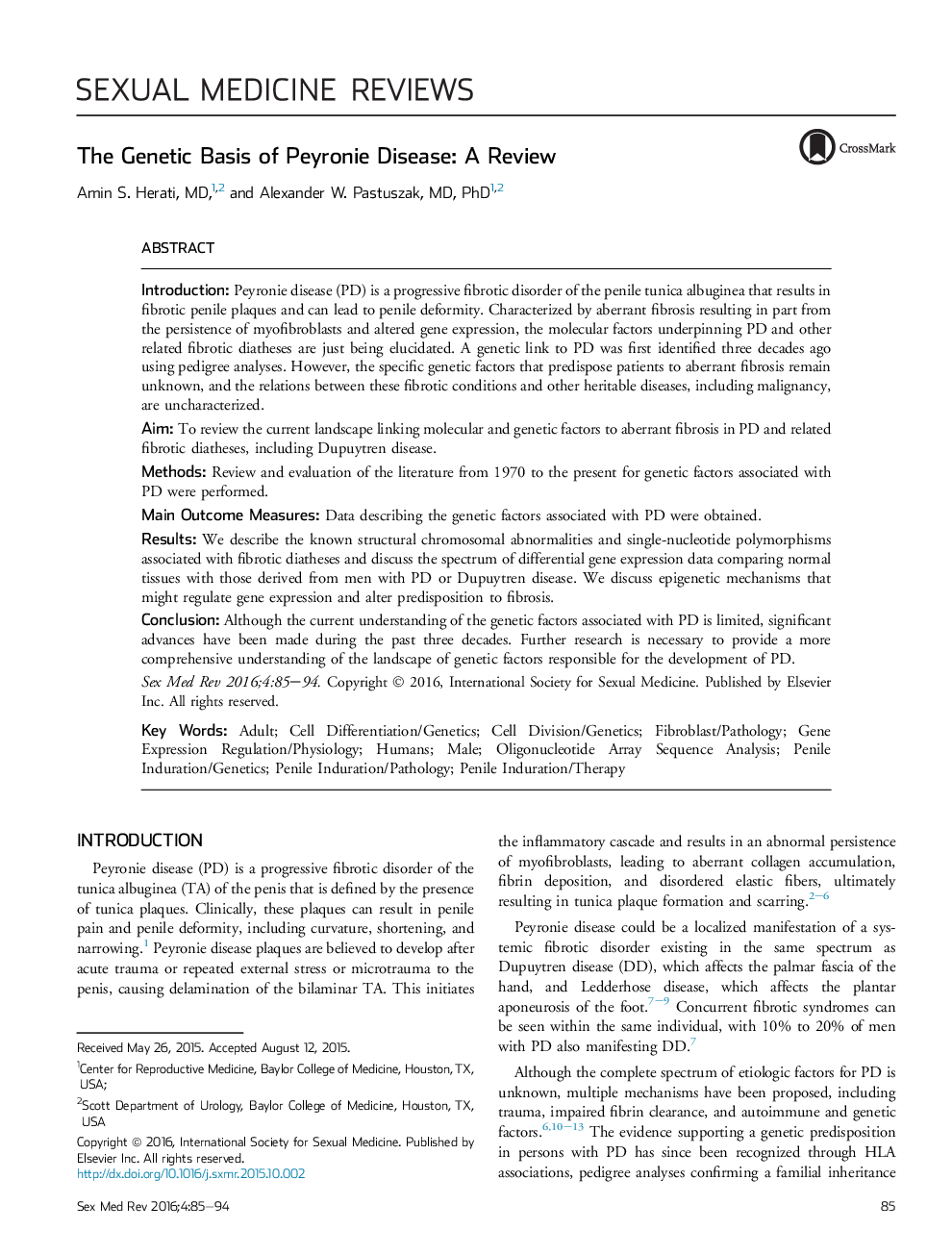| Article ID | Journal | Published Year | Pages | File Type |
|---|---|---|---|---|
| 4274657 | Sexual Medicine Reviews | 2016 | 10 Pages |
IntroductionPeyronie disease (PD) is a progressive fibrotic disorder of the penile tunica albuginea that results in fibrotic penile plaques and can lead to penile deformity. Characterized by aberrant fibrosis resulting in part from the persistence of myofibroblasts and altered gene expression, the molecular factors underpinning PD and other related fibrotic diatheses are just being elucidated. A genetic link to PD was first identified three decades ago using pedigree analyses. However, the specific genetic factors that predispose patients to aberrant fibrosis remain unknown, and the relations between these fibrotic conditions and other heritable diseases, including malignancy, are uncharacterized.AimTo review the current landscape linking molecular and genetic factors to aberrant fibrosis in PD and related fibrotic diatheses, including Dupuytren disease.MethodsReview and evaluation of the literature from 1970 to the present for genetic factors associated with PD were performed.Main Outcome MeasuresData describing the genetic factors associated with PD were obtained.ResultsWe describe the known structural chromosomal abnormalities and single-nucleotide polymorphisms associated with fibrotic diatheses and discuss the spectrum of differential gene expression data comparing normal tissues with those derived from men with PD or Dupuytren disease. We discuss epigenetic mechanisms that might regulate gene expression and alter predisposition to fibrosis.ConclusionAlthough the current understanding of the genetic factors associated with PD is limited, significant advances have been made during the past three decades. Further research is necessary to provide a more comprehensive understanding of the landscape of genetic factors responsible for the development of PD.
